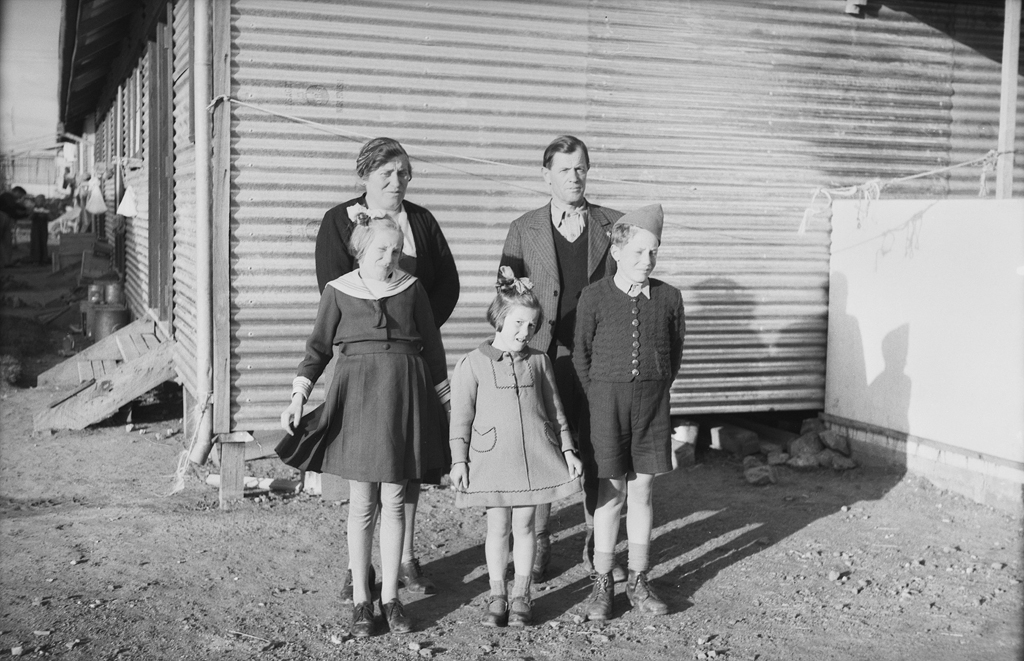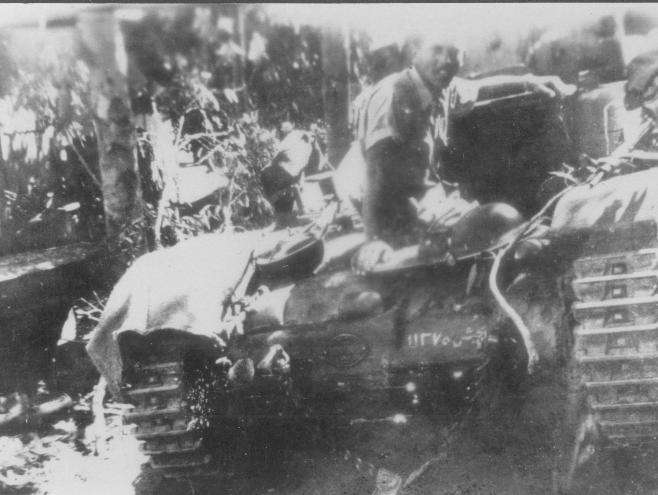|
Joseph Trumpeldor
Joseph Vladimirovich (Volfovich) Trumpeldor (21 November 1880 – 1 March 1920, he, יוֹסֵף טְרוּמְפֶּלְדוֹר , russian: Иосиф Владимирович (Вольфович) Трумпельдор ) was an early Zionist activist who helped to organize the Zion Mule Corps and bring Jewish immigrants to Palestine. Trumpeldor died defending the settlement of Tel Hai in 1920 and subsequently became a Jewish national hero. According to a standard account, his last words were "It's nothing, it is good to die for our country", but that he ever said these words has been challenged. Early life Joseph Trumpeldor was born in Pyatigorsk in the North Caucasus of the Russian Empire. His father, Wulf Trumpeldor, served as a cantonist in the Caucasian War, and as a " useful Jew", was allowed to live outside the Pale of Settlement. Though proudly Jewish, Trumpeldor's upbringing was more Russian than traditionally Jewish. Originally in training as a dentist, Jose ... [...More Info...] [...Related Items...] OR: [Wikipedia] [Google] [Baidu] |
Pyatigorsk
Pyatigorsk (russian: Пятиго́рск; Circassian: Псыхуабэ, ''Psıxwabæ'') is a city in Stavropol Krai, Russia located on the Podkumok River, about from the town of Mineralnye Vody where there is an international airport and about from Kislovodsk. Since January 19, 2010, it has been the administrative center of the North Caucasian Federal District of Russia. Population: Overview The name is derived from the fused Russian words "" (''five mountains'') and the city is so called because of the five peaks of the Beshtau (which also means ''five mountains'' in Turkic) of the Caucasian mountain range overlooking the city. It was founded in 1780, and has been a health spa with mineral springs since 1803. Pyatigorsk is one of the oldest spa resorts in Russia. The health resort provides unique medical resources, and its underground wealth supplies 50 different mineral springs, medical mud taken from Lake Tambukan located from Pyatigorsk, and the mild climate of ... [...More Info...] [...Related Items...] OR: [Wikipedia] [Google] [Baidu] |
Cantonist
Cantonists ( Russian language: кантонисты; more properly: военные кантонисты, "military cantonists") were underage sons of conscripts in the Russian Empire. From 1721 on they were educated in special "canton schools" (Кантонистские школы) for future military service (the schools were called garrison schools in the 18th century). The canton schools and the cantonist system were eventually abolished in 1857, following public and international criticism and the Russian defeat in the Crimean War. Cantonist schools during the 18th and early 19th centuries Cantonist schools were established by the 1721 decree of Tsar Peter the Great that stipulated that every regiment was required to maintain a school for 50 boys. Their enrollment was increased in 1732, and the term was set from the age of 7 to 15. The curriculum included grammar and arithmetic, and those with a corresponding aptitude were taught artillery, fortification, music and singing, ... [...More Info...] [...Related Items...] OR: [Wikipedia] [Google] [Baidu] |
Ze'ev Jabotinsky
Ze'ev Jabotinsky ( he, זְאֵב זַ׳בּוֹטִינְסְקִי, ''Ze'ev Zhabotinski'';, ''Wolf Zhabotinski'' 17 October 1880 – 3 August 1940), born Vladimir Yevgenyevich Zhabotinsky, was a Russian Jewish Revisionist Zionist leader, author, poet, orator, soldier, and founder of the Jewish Self-Defense Organization in Odessa. With Joseph Trumpeldor, he co-founded the Jewish Legion of the British army in World War I. Later he established several Jewish organizations in Palestine, including Betar, Hatzohar, and the Irgun. His influence on Israeli politics is profound through his closest protégé Menachem Begin's administration (1977–1983), consolidating the domination of Israeli politics by the right-wing Likud party; and through the administrations (1996–1999, 2009–2021) of Likud's leader (1993–1999, 2005–) Benjamin Netanyahu, the son of his former personal secretary and historian, Benzion Netanyahu. Early life Vladimir Yevgenyevich (Yevnovich) Zh ... [...More Info...] [...Related Items...] OR: [Wikipedia] [Google] [Baidu] |
Sultanate Of Egypt
The Sultanate of Egypt () was the short-lived protectorate that the United Kingdom imposed over Egypt between 1914 and 1922. History Soon after the start of the First World War, Khedive Abbas II of Egypt was removed from power by the British because of his pro-Ottoman positions. He was replaced by his uncle Hussein Kamel, who declared Egypt's independence from the Ottoman Empire and proclaimed himself as Sultan. Though presented as the re-establishment of the pre-Ottoman Egyptian sultanate, the newly created Sultanate was to be a British protectorate, with effective political and military power vested in British officials. This brought to an end the ''de jure'' Ottoman sovereignty over Egypt, which had been largely nominal since Muhammad Ali's seizure of power in 1805. Opposition to European interference in Egyptian affairs resulted in the emergence of a nationalist movement that coalesced and spread: British actions during the First World War caused widespread resentmen ... [...More Info...] [...Related Items...] OR: [Wikipedia] [Google] [Baidu] |
Enemy Alien
In customary international law, an enemy alien is any native, citizen, denizen or subject of any foreign nation or government with which a domestic nation or government is in conflict and who is liable to be apprehended, restrained, secured and removed. Usually, the countries are in a state of declared war. Australia In Australia, in the wake of the outbreak of World War II, Jewish refugees and others fleeing the Nazis were classified as "enemy aliens" upon their arrival in Australia if they arrived with German identity papers. Australian law in 1939 designated people "enemy aliens" if they were Germans or were Australians who had been born in Germany; later, it covered Italians and Japanese as well. The Australian government would therefore intern them, sometimes for years until the war ended, in camps such as the isolated Tatura Internment Camp 3 D which held approximately 300 internees thus deemed "enemy aliens", mostly families, including children as young as two years o ... [...More Info...] [...Related Items...] OR: [Wikipedia] [Google] [Baidu] |
Degania Alef
Degania Alef ( he, דְּגַנְיָה א', ) is a kibbutz in northern Israel. The Jewish communal settlement ('' kvutza'') started off in 1910, making it the earliest socialist Zionist farming commune in the Land of Israel. Its status as "the mother of all kibbutzim" is sometimes contested based on a later distinction made between the smaller ''kvutza'', applying to Degania in its beginnings, and the larger ''kibbutz''. It falls under the jurisdiction of the Emek HaYarden Regional Council. Degania Alef and its neighbor Degania Bet both lie between the southern shore of the Sea of Galilee and the Jordan River. As of it had a population of . Etymology ''Degania'' means "cornflower" and is derived from דגן ''dagán'', meaning "grain". After the first phase at Umm Junieh, the group and its settlement was simply called ''Degania'', ''Alef'' being added only after the establishment of the associated kibbutzim of ''Degania Bet'' and ''Gimel'' in 1920. Alef, bet and gimel ar ... [...More Info...] [...Related Items...] OR: [Wikipedia] [Google] [Baidu] |
Kibbutz
A kibbutz ( he, קִבּוּץ / , lit. "gathering, clustering"; plural: kibbutzim / ) is an intentional community in Israel that was traditionally based on agriculture. The first kibbutz, established in 1909, was Degania. Today, farming has been partly supplanted by other economic branches, including industrial plants and high-tech enterprises. Kibbutzim began as utopian communities, a combination of socialism and Zionism. In recent decades, some kibbutzim have been privatized and changes have been made in the communal lifestyle. A member of a kibbutz is called a ''kibbutznik'' ( he, קִבּוּצְנִיק / ; plural ''kibbutznikim'' or ''kibbutzniks''). In 2010, there were 270 kibbutzim in Israel with population of 126,000. Their factories and farms account for 9% of Israel's industrial output, worth US$8 billion, and 40% of its agricultural output, worth over US$1.7 billion. Some kibbutzim had also developed substantial high-tech and military industries. For exam ... [...More Info...] [...Related Items...] OR: [Wikipedia] [Google] [Baidu] |
Sea Of Galilee
The Sea of Galilee ( he, יָם כִּנֶּרֶת, Judeo-Aramaic: יַמּא דטבריא, גִּנֵּיסַר, ar, بحيرة طبريا), also called Lake Tiberias, Kinneret or Kinnereth, is a freshwater lake in Israel. It is the lowest freshwater lake on Earth and the second-lowest lake in the world (after the Dead Sea, a saltwater lake), at levels between and below sea level. It is approximately in circumference, about long, and wide. Its area is at its fullest, and its maximum depth is approximately .Data Summary: Lake Kinneret (Sea of Galilee) The lake is fed partly by underground springs, but its main source is the |
Ottoman Empire
The Ottoman Empire, * ; is an archaic version. The definite article forms and were synonymous * and el, Оθωμανική Αυτοκρατορία, Othōmanikē Avtokratoria, label=none * info page on book at Martin Luther University) // CITED: p. 36 (PDF p. 38/338) also known as the Turkish Empire, was an empire that controlled much of Southeast Europe, Western Asia, and North Africa, Northern Africa between the 14th and early 20th centuries. It was founded at the end of the 13th century in northwestern Anatolia in the town of Söğüt (modern-day Bilecik Province) by the Turkoman (ethnonym), Turkoman tribal leader Osman I. After 1354, the Ottomans crossed into Europe and, with the Ottoman wars in Europe, conquest of the Balkans, the Ottoman Anatolian beyliks, beylik was transformed into a transcontinental empire. The Ottomans ended the Byzantine Empire with the Fall of Constantinople, conquest of Constantinople in 1453 by Mehmed the Conqueror. Under the reign of Sule ... [...More Info...] [...Related Items...] OR: [Wikipedia] [Google] [Baidu] |
Siege Of Port Arthur
The siege of Port Arthur ( ja, 旅順攻囲戦, ''Ryojun Kōisen''; russian: link=no, Оборона Порт-Артура, ''Oborona Port-Artura'', August 1, 1904 – January 2, 1905) was the List of battles of the Russo-Japanese War, longest and most violent land battle of the Russo-Japanese War. Lüshunkou District, Port Arthur, the deep-water port and Russian naval base at the tip of the Liaodong Peninsula in Manchuria, had been widely regarded as one of the most strongly fortified positions in the world. However, during the First Sino-Japanese War, Nogi Maresuke, General Nogi Maresuke had taken the city from the forces of Qing dynasty, Qing China in only a few days. The ease of his victory during the previous conflict, and overconfidence by the Japanese General Staff in its ability to overcome improved Russian fortifications, led to a much longer campaign and far greater losses than expected. The siege of Port Arthur saw the introduction of much technology used in subseq ... [...More Info...] [...Related Items...] OR: [Wikipedia] [Google] [Baidu] |
Dentist
A dentist, also known as a dental surgeon, is a health care professional who specializes in dentistry (the diagnosis, prevention, management, and treatment of diseases and conditions of the oral cavity and other aspects of the craniofacial complex including the temporomandibular joint). The dentist's supporting team aids in providing oral health services. The dental team includes dental assistants, dental hygienists, dental technicians, and sometimes dental therapists. History Middle Ages In China as well as France, the first people to perform dentistry were barbers. They have been categorized into 2 distinct groups: guild of barbers and lay barbers. The first group, the Guild of Barbers, was created to distinguish more educated and qualified dental surgeons from lay barbers. Guild barbers were trained to do complex surgeries. The second group, the lay barbers, were qualified to perform regular hygienic services such as shaving and tooth extraction as well as basic surg ... [...More Info...] [...Related Items...] OR: [Wikipedia] [Google] [Baidu] |





